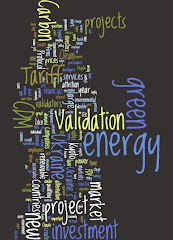Simply put, a blockchain refers to a distributed ledger that contains unchangeable blocks of digital data - each block is attached to next one by cryptography, in a chain. It is a way for many people to see the same record of data/events/transactions all over the world in real time, and to request/get things from the system on pre-agreed terms. A distributed ledger is defined by Wikipedia as "a consensus of replicated, shared, and synchronized digital data geographically spread across multiple sites, countries, or institutions." Basically a bunch of data that is recorded/tracked/updated simultaneously so that all users/viewers see the most up to date version at all times.
Distributed ledgers tend to have the following common properties:
- Use of cryptography to attach blocks of data and confirm/reconcile transactions (so that the system is not susceptible to fraud or manipulation)
- Many copies of the ledger (and their simultaneous updates in real time) are available for viewing/tracking by everyone with access
- Different levels of access control (viewing, editing, or both) can be set for users of the ledger - regulators and validators can be defined by the system - features can be set to public or private
- Irreversible - once the ledger is updated and new data is recorded to it, the outcome is permanent and cannot be edited/manipulated later
Many smart contracts currently run on Ethereum. They create automatic, essentially free processes that are autonomous, self-sufficient and decentralized. Pre-agreed events trigger the execution of the contract, and execution and value transfer aspects to the contract proceed in an automatic manner. In this way, companies can remove middle men and costs from their business models to deal directly with counter parties without the need for costly escrow agents, approval/verification gateway service providers, claim validators, etc. By removing middle men, you also reduce the likelihood of errors within a process.
There are even now efforts to use the blockchain to create autonomous organizations, companies and societies. DAO (decentralized autonomous organization), DAC (decentralized autonomous corporation), and DAS (decentralized autonomous society) all use blockchain technology and smart contracts to create autonomously run entities - a virtual crossover if you will between a technological process and daily life.
Blockchain's key value added is that it reduces the need for people to do work - it automates and safeguards sensitive transactions and interactions in a trustless world. The technology is still very much in its early adaptation phase, much like the Internet was in the 1990s, but its long-term impact on businesses and industries may be profound.


